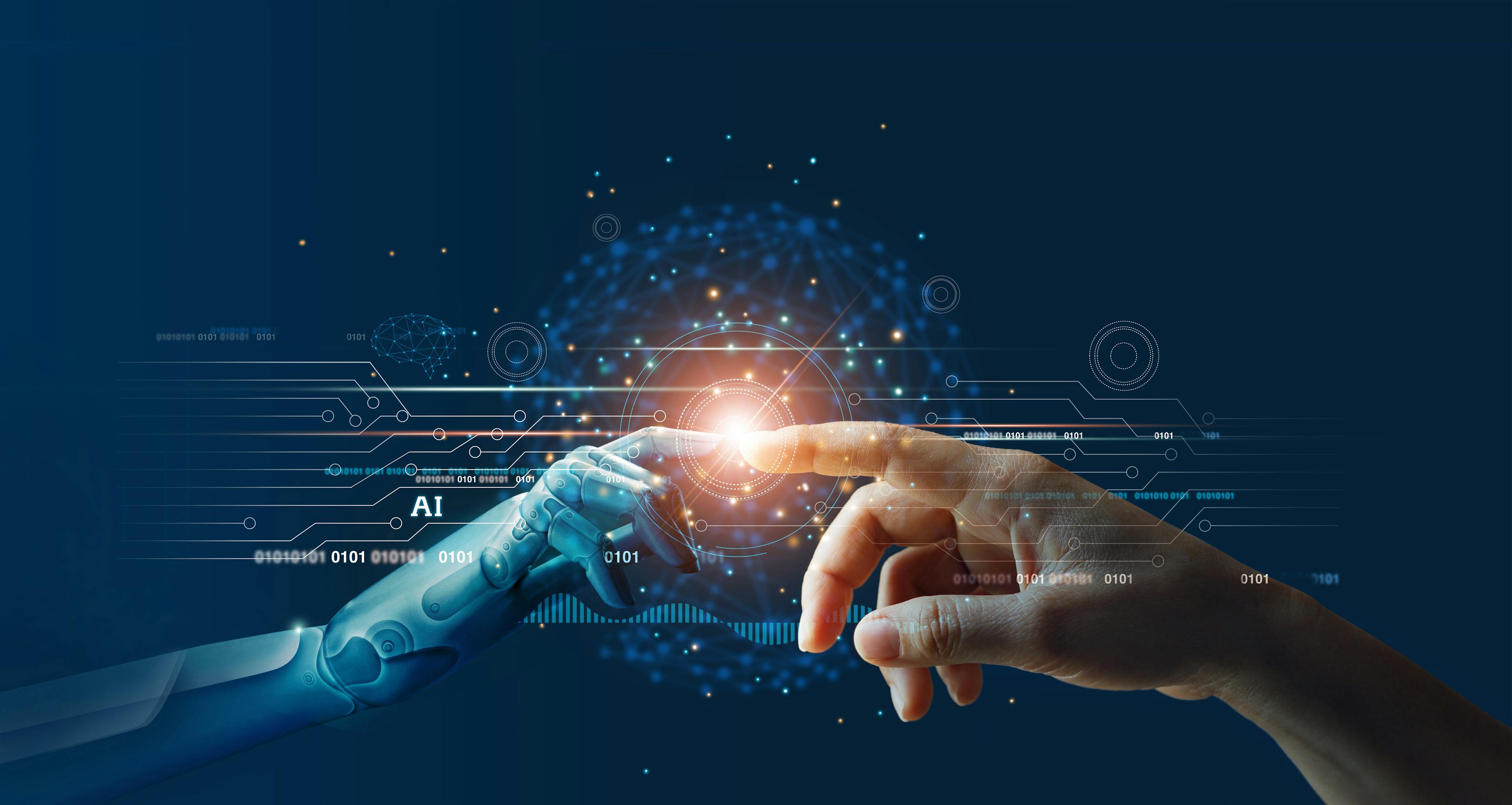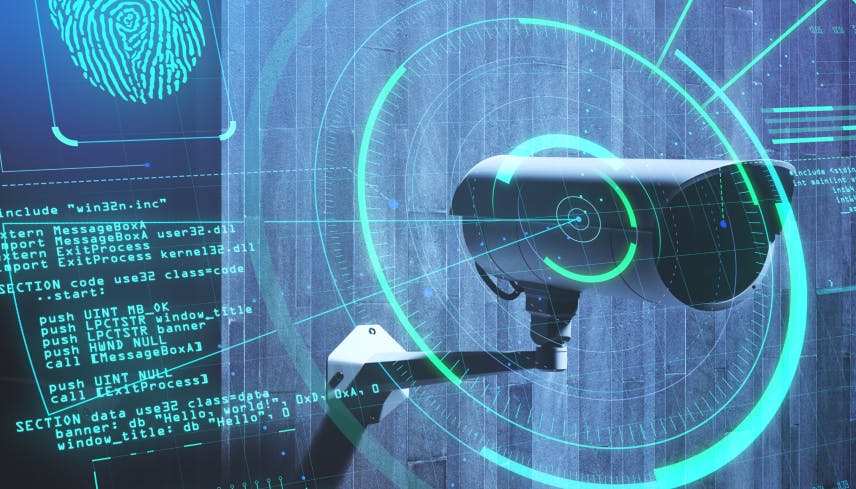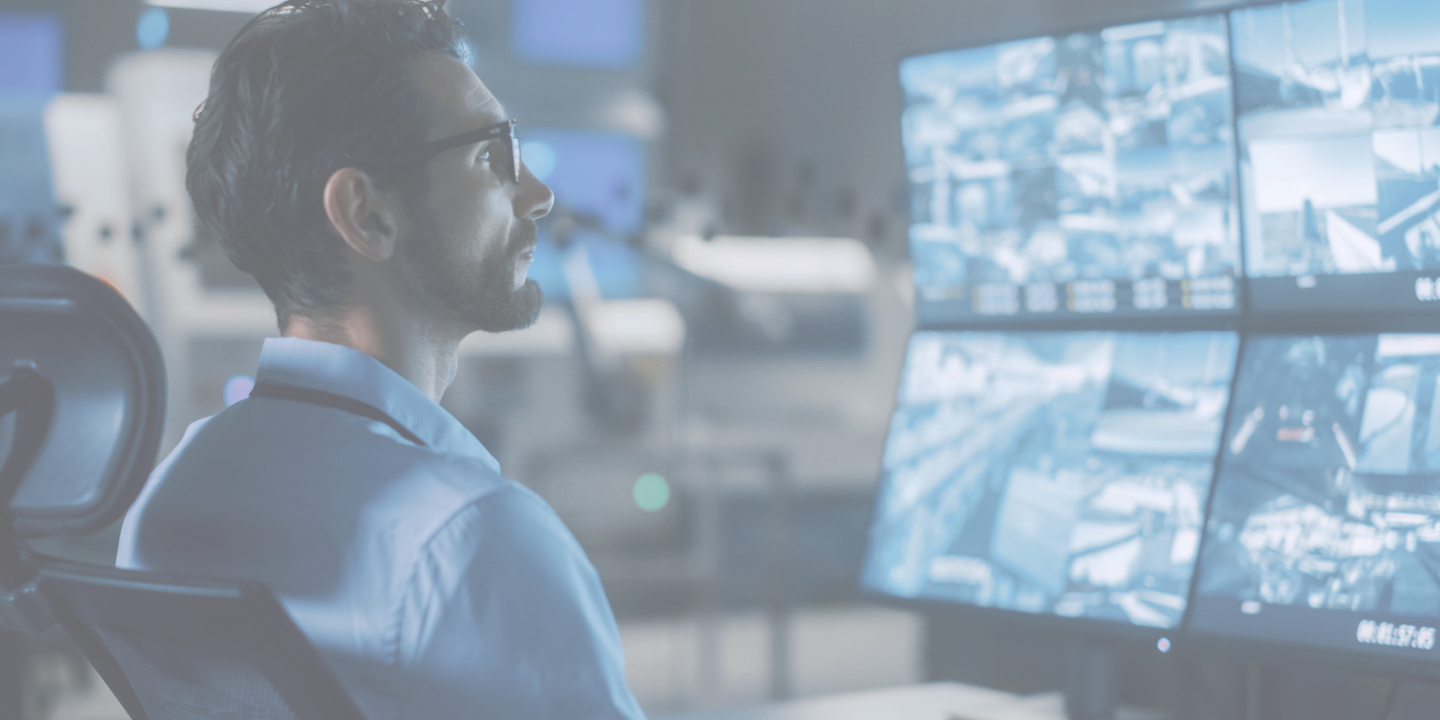
- Artificial Intelligence
How Artificial Intelligence empowers Security Professionals to take their service delivery to a new level
Modern digital technology is rapidly gaining ground as an integral part of security professionals' daily operations. Companies across the security industry are increasingly embracing artificial intelligence to make their jobs easier and manage the growing complexity of their security practices that must respond appropriately to today's data deluge and keep pace with customer expectations. So how exactly has AI improved security?
First: What is Artificial Intelligence in the Security industry?
AI, short for Artificial Intelligence, is a discipline of computer science hidden in many aspects of security today: To keep us safe, AI can be found in many facets of security, not least in video surveillance, home security, or threat screening for significant events. In short, when machines do intelligent things on their own, without human guidance to keep you safe, you can be pretty sure that AI is their backbone.
For security systems to perform tasks and solve problems the way we would, they must be equipped with human-like intelligence. But how can human intelligence be imitated? AI developers use mathematical functions and complex algorithms to replicate human intelligence in security technology. What many don't know, however, is that AI is also heavily influenced by psychology, neuroscience, philosophy, and communications. Computer science can be seen as a mere enabler, a means to an end to implementing AI.
Depending on their specific goal, two types of AI security can be distinguished: So-called strong AI (also called "superintelligence") and weak AI. While strong AI aims to match or even surpass the intellectual capabilities of humans by imitating human reasoning and behavior, weak AI security solutions operate at a relatively superficial level of intelligence. While they do not develop a deep understanding of problems to solve, their ability to perform tasks autonomously and automatically is already opening incredible opportunities for the security companies that deploy them. A prominent example of strong AI in security is alarm management, which improves alarm verification accuracy and reduces the number of false alarms.

Artificial Intelligence (AI), Machine Learning (ML), and Deep Learning (DL): A clarification
The terms "artificial intelligence," "machine learning," and "deep learning" terms are often used interchangeably, with AI simply being the umbrella term and more expansive definition including both machine learning and deep learning. However, by knowing which aspects differ and their specific capabilities, security managers can make better-informed decisions when looking for security solutions and choose the appropriate AI-based tool for a particular security measure.
Machine Learning
As "the ability for computers to learn without being explicitly programmed" (Arthur Sand), Machine Learning (ML) is a type of AI that is a fast-growing trend in the security industry. It describes systems generating knowledge from experience independently without being programmed first. Its engines are based on intelligent self-learning algorithms many security systems use, such as SIEM or malware analysis. ML applications can conclude and make predictions by recognizing patterns and certain regularities in large amounts of data and linking and correlating them intelligently. To independently identify threats and understand security incidents, they seek to distinguish normal from suspicious behaviors. The programs underlying this AI search large amounts of data for certain regularities and patterns put security events into groups, and intelligently correlate them. If exposed to additional data streams, systems with machine learning capabilities will improve their performance over time – they get more intelligent. This is how ML applications in security can contribute to freeing resources and relieve employees of tedious, unproductive, and repetitive tasks.
ML appliances can also pass their experience to other machines, such as robots or drones. ML applications help security authorities make sense of threats and predict incidents at machine speed, making them particularly valuable for data-driven companies that rely on an operational cyber security environment for their business.
Used in physical security, AI – and more precisely, ML – is already heavily implemented in retail: For instance, to cut fraud at supermarket self-checkouts. In combination with cameras, AI is used to cross-check scanned items. By helping to detect and prevent fraudulent barcode use by consumers, such technology holds the potential to save retailers billions annually.
Deep Learning
Deep Learning is Machine Learning. It is, in fact, a form and evolution of machine learning and artificial intelligence (AI) that mimics the way humans acquire knowledge by using artificial neural networks, statistic methods, and large amounts of data. It is about "(…) teaching technology to understand the world around us in a way that is similar to how we understand it" (Willem Ryan, Senior Director, Global Marketing at Avigilon).
Based on the information available, systems using DL can repeatedly link what they have learned with new content and, thus, continuously learn new things. These systems can then provide forecasts, make independent decisions, and critically question them at a certain point.
The key difference between machine learning and deep learning applications is that humans do not usually intervene in the learning processes of the latter. Nor do they have to: Using programmable neural networks, systems built on DL mechanisms can make precise decisions without human assistance.
Deep Learning is particularly useful for predicting customer behavior using voice, object, photo, or face recognition abilities. This is why DL is deployed in settings where large amounts of data must be inspected for underlying patterns.
Artificial Intelligence in Security on the rise
AI has various unique characteristics that help it advance into the security realm. AI is rapidly growing for multiple applications, with physical and cyber security being some of them.
This emergence is enabled and driven by the convergence of several factors: First and foremost, the availability of a wide variety of data ("big data") allows security professionals to train their systems effectively. In physical security, this data is, for example, generated by many sensors, including thermal and infrared sensors and motion detectors used in video image surveillance cameras. Other accelerators of the growth of AI in security are open-source software, the increase in deep neural networks, and next-generation computing architecture.
Being connected to multiple independent endpoints, enterprises are becoming increasingly vulnerable to cyber security threats. This is only being reinforced by the rise of evermore connected businesses, devices, and applications. By providing security professionals with proactive threat mitigation capabilities such as real-time alerts, AI and applications enable their users to protect any system. Machine learning in AI can proactively prevent threats and malware rather than just detecting them, significantly contributing to AI's enormous potential and value proposition to the security market.
The benefits of Artificial Intelligence: Why does it matter in the Security industry?
With humans no longer adequately protecting an organization's dynamic threat surface, AI provides the much-needed threat analysis and identification capabilities that cybersecurity professionals must incorporate to reduce the risk of breaches and improve security posture.
AI allows security professionals to make better-informed decisions to protect valuables better and lives with fewer human resources in control rooms: By integrating AI into surveillance systems, AI can eliminate repetitive or tiresome work for humans, such as sifting through hours of video footage, while at the same time improving the surveillance efficiency and accuracy employing threat recognition at machine speed.
Current security analysts often struggle to find the time to detect new threats. In addition, the methods they use for threat hunting are often time- and resource-intensive, often resulting in alert fatigue. AI security helps save time hunting for threats and aims at detecting and stopping cyber threats with less human intervention than is expected or required by traditional security approaches.
How can Security Professionals use Artificial Intelligence to perform better?

In the context of security, AI holds the potential to help security professionals identify and prioritize risks. It can support them in detecting malware on a network immediately, managing incident response, and detecting intrusions before they start. AI is deployed in physical security, making remote monitoring, perimeter security systems, and access control more responsive, powerful, and effective. How? By detecting unusual situations, such as specific movement in an area where there should be no movement at that time, AI greatly assists remote monitoring agents. As this enables these agents to understand the situation on the ground more quickly, they can also react faster. Furthermore, the AI can distinguish general from human movements, reducing false alarms.
“Loitering” Detection
AI in surveillance cameras can track moving objects and detect prolonged lingering in specified areas. If people dwell outside the perimeter for too long, such behavior is suspicious as it could signify they are preparing for an intrusion. For example, people lingering after hours on school grounds often results in property damage or graffiti. Integrated with an intelligent camera's event management functions, automatic responses to event triggers can be defined and programmed, such as automatically turning on the lights in a designated area or playing a message over loudspeakers. AI in security technology helps prevent crimes like vandalism and break-ins.

If combined with robotics, AI can significantly benefit the surveillance industry and offer the possibility to extend the scope of surveillance areas without needing additional guards or law enforcement. Even though drones now still require human operators to determine their flight paths, the evolution of artificial intelligence (AI) is improving the ability of these machines to operate autonomously. The potential this opens for the safety of assets and people is enormous: Think of the considerable benefit that robots or drones could provide by autonomously navigating a given area, watching for suspicious behavior or people in need of help, such as lost or injured hikers, to alert first responders or rescue workers.
Revolving back to the retail example: We can also see AI used in in-store surveillance appliances or cashier-less stores, looking out for suspicious behavior. Apart from picture-based devices, AI can also appear in "aggression detectors": Security devices that use microphones equipped with algorithms to identify stress and anger before violence erupts.
“Slip & Fall” Detection
Today, many AI appliances in retail security use "slip and fall" detection: A machine learning-based technology that instantly detects slip, trip, and fall incidents for timely handling. If a store is unmanned or has no personnel around, no one might notice if a customer or employee slips, trips, falls, or faints. Without immediate help, this person might suffer from serious injuries or even die, leading to severe liabilities for the respective store. Artificial Intelligence Security is no silver bullet.
Especially the cybersecurity industry is notorious for jumping to methods considered panaceas rather than considering the most valuable applications. This is also true for AI security tools, with some cybersecurity professionals viewing AI security as the silver bullet in threat detection. It's vital to note that AI can improve cybersecurity if enterprises understand its limitations. As is also the case with AI, an overreliance on anything only burdens the organization with unnecessary risk and should be avoided.
For security professionals, having a clear vision and strategy that focuses on the present and its possibilities while always keeping an eye on the ever-evolving threat landscape remains essential.
The future of Artificial Intelligence in Security
We learned that AI is not only a fast-growing trend across all industries but that its manifold potential to intelligently link data, draw conclusions independently and automatically, and automate predictions opens entirely new possibilities. Especially in markets like security, where large amounts of data must be processed meaningfully, AI appliances shouldn't be missed to be fit-for-future.
AI's sphere of influence on the physical security industry will only expand in the future. It keeps on being exciting to see how this impact unfolds over the next few years. AI device manufacturers and security researchers anticipate that deep-learning technologies will deliver unprecedented insight into human behavior, allowing video systems to monitor and predict crime more accurately. AI will likely grow in providing scalable solutions across various vertical markets.
Curious to learn how evalink can help you leverage AI for your security business? Let us show you what’s possible – book a free demo.



